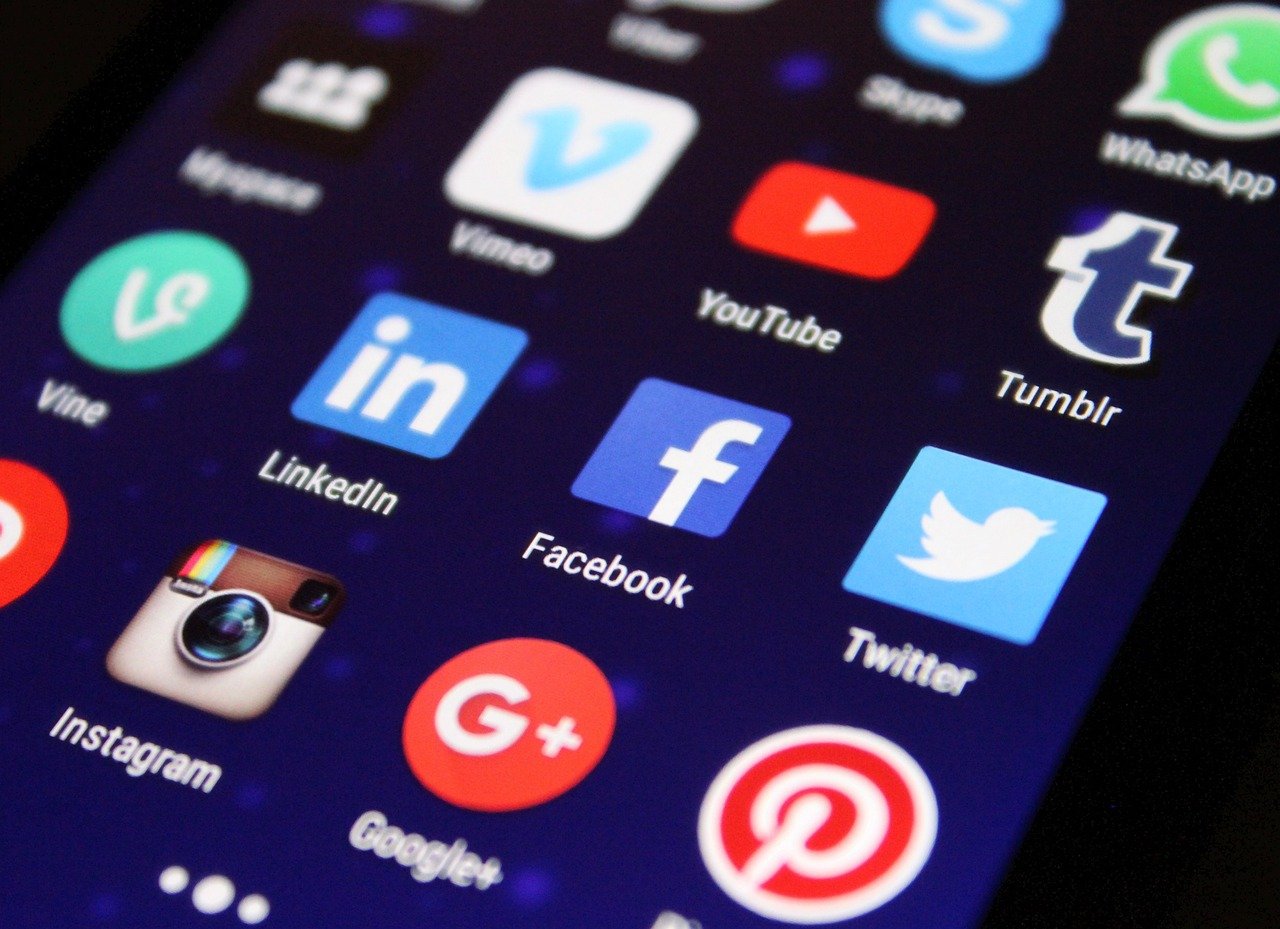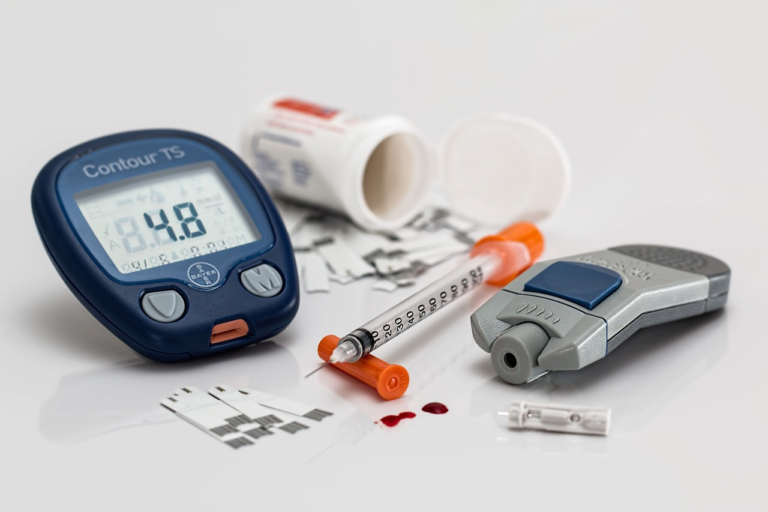The Impact of Social Media on Mental Health for Those Living with diabetes
#ez-toc-container {
background: #f9f9f9;
border: 1px solid #aaa;
border-radius: 4px;
-webkit-box-shadow: 0 1px 1px rgba(0, 0, 0, .05);
box-shadow: 0 1px 1px rgba(0, 0, 0, .05);
display: table;
margin-bottom: 1em;
padding: 10px 20px 10px 10px;
position: relative;
width: auto;
}
.ez-toc-container-direction {
direction: ltr;
}
.ez-toc-list-level-1 a{
font-weight:bold;
}
Table of Contents
1. Introduction: Understanding the Intersection of Social Media, Mental Health, and Diabetes
In today’s digital age, social media has become an integral part of many people’s lives, including those managing chronic health conditions such as diabetes. Understanding the dynamics of social media usage among individuals with diabetes can provide valuable insights into how they manage their condition, interact with health professionals, and maintain their mental well-being. This segment will provide a brief overview of key trends in social media usage among people with diabetes, emphasize the significance of mental health management in diabetes care, and outline the purpose and scope of this article.
Social Media Usage Trends Among Individuals with Diabetes
Social media platforms like Facebook, Instagram, Twitter, and specialized health networks have reshaped the way individuals with diabetes share experiences and seek information. With the growing number of online resources and communities, understanding these trends is crucial for both patients and healthcare providers. Here’s an overview of the main trends:
- Community Support: Social media offers a sense of community and support for individuals with diabetes. Online groups allow users to connect with others facing similar challenges, providing emotional support and advice that can significantly impact ongoing management and mental well-being.
- Access to Information: Patients are increasingly turning to social media for credible information. This trend highlights the need for reliable, science-based content to be disseminated on social networks to ensure individuals have access to trustworthy resources.
- Empowerment and Advocacy: Social media empowers patients to share their stories and advocate for better diabetes care. By sharing personal experiences, patients can raise awareness about daily challenges and needs, driving changes in perception and policy.
As these platforms continue to influence how individuals with diabetes interact and access care, recognizing their role in mental health becomes essential.
The Significance of Mental Health Management in Diabetes Care
Mental health is a critical component of comprehensive diabetes care, as psychological well-being can significantly affect disease management and patient outcomes. Here are some critical reasons why mental health management is significant in diabetes care:
- Impact on Glycemic Control: Stress, anxiety, and depression are known to affect blood sugar levels, making it crucial for individuals with diabetes to maintain stable emotional health. Addressing mental health may therefore lead to better glycemic control.
- Improved Self-Management: Individuals struggling with poor mental health might find it challenging to adhere to their diabetes management plan. Effective mental health care can enhance commitment to healthy behaviors, such as regular exercise, a balanced diet, and medication adherence.
- Overall Quality of Life: Mental well-being plays a pivotal role in a person’s overall quality of life. Individuals with diabetes need to experience holistic care that encompasses both physical and mental health dimensions.
Given the profound interconnection between mental health and diabetes management, integrating mental health strategies into diabetes care is becoming increasingly recognized across healthcare systems worldwide.
Purpose and Scope of the Article
The primary purpose of this article is to explore the intersection of social media, mental health, and diabetes. Providing a comprehensive analysis, the article will delve into how social media platforms can be both beneficial and detrimental to the mental health of individuals managing diabetes. This segment aims to:
- Highlight current trends in social media usage among individuals with diabetes.
- Discuss the significance of addressing mental health within diabetes management plans.
- Evaluate the dual role of social media in contributing to both positive and negative mental health outcomes.
- Offer recommendations on how individuals with diabetes can leverage social media positively while mitigating potential risks.
Through this examination, we aim to provide insights tailored to healthcare providers, patients, and policymakers to improve mental health outcomes and diabetes self-care strategies.
By navigating these complexities, individuals and stakeholders can better understand the pivotal role that social media can play in the mental and emotional dimensions of diabetes management.

2. The Dual Role of Social Media in Mental Health: Benefits and Risks
Social media has transformed how we interact with each other, offering numerous advantages and risks that can significantly impact mental health. For individuals with diabetes, social media presents both a lifeline and a minefield. Understanding its dual role is crucial for harnessing the benefits while mitigating the risks.
Advantages of Social Media
Social media platforms provide a myriad of advantages for users, especially those seeking support, information, and emotional connections. These benefits are particularly notable within the diabetes community.
- Community Support: Social media platforms create avenues for people with diabetes to connect with others facing similar challenges. Online communities and support groups offer a space where individuals can share experiences, advice, and encouragement. This sense of belonging can profoundly help in managing the emotional burden associated with diabetes.
- Information Access: Social media empowers users by providing access to a broad array of information. For those with diabetes, this means getting updates on the latest research, treatment options, and lifestyle tips. Social media becomes a powerful tool for learning and self-education, enabling individuals to stay informed about their condition.
- Emotional Connections: Beyond informational support, social media facilitates emotional connections. Platforms such as Facebook, Instagram, and Twitter allow individuals to interact with friends, family, and fellow diabetes advocates, fostering a network of social support that can alleviate feelings of isolation and anxiety.
Potential Risks of Social Media
While social media offers several advantages, it is not without its risks. Several potential dangers can arise from its use, impacting mental health adversely.
- Cyberbullying: Cyberbullying remains a significant concern, and individuals with diabetes are not immune to online attacks. Negative interactions can lead to heightened levels of stress, anxiety, and depression, detrimentally affecting mental health.
- Misinformation: The spread of misinformation is rampant on social media. For diabetes patients, false or misleading information regarding treatment options and health advice can lead to confusion and poor health decisions, ultimately affecting both physical and mental well-being.
- Unhealthy Comparisons: Social media often portrays idealized versions of life, leading users to compare their situations with others. This can contribute to feelings of inadequacy and low self-esteem, particularly for individuals managing a chronic condition like diabetes.
Statistics Highlighting the Impact on Mental Health in Diabetes Communities
Several studies have highlighted the unique impacts of social media on the mental health of people with diabetes. These insights provide a clearer understanding of both the benefits and dangers involved.
- A study revealed that 65% of individuals with diabetes use social media platforms to seek community support and information, underscoring the importance of these online networks.
- On the downside, statistics show that 40% of social media users with diabetes have encountered cyberbullying, making it a prevalent issue that needs addressing.
- Research indicates that about 70% of individuals with diabetes report feeling empowered and more informed due to social media usage, illustrating its potential for positive impact.
- Conversely, 50% have reported experiencing anxiety or depression due to negative interactions or misinformation encountered online, highlighting the dual nature of social media’s influence on mental health.
In conclusion, while social media presents potential risks, such as cyberbullying, misinformation, and unhealthy comparisons, its advantages in fostering community support, information access, and emotional connections are undeniable. As users, especially those within the diabetes community, navigate these digital landscapes, awareness and strategies to maximize benefits while minimizing risks are paramount. Understanding the dual role of social media can empower individuals to use these platforms safely and effectively for both support and information.

3. Positive Influences of Social Media on Mental Health for Diabetics
Social media platforms are often viewed through a lens of skepticism, especially when discussing their impact on mental health. However, for diabetics, these platforms can offer a lifeline of support and education, enabling individuals to manage their condition with greater confidence and community support. In this segment, we delve into the positive influences of social media on mental health for diabetics, highlighting supportive online communities, personal empowerment stories, and the influential role of advocates.
Case Studies of Supportive Online Diabetes Communities
One of the most significant benefits of social media for diabetics is the emergence of online diabetes communities. These communities provide a safe space for individuals to share their experiences, challenges, and victories. The sense of community can significantly affect mental health, offering understanding, empathy, and shared experiences.
- Diabetes Connect: This is a platform where individuals with diabetes can communicate in real-time with others who have similar conditions. Members share tips on managing blood sugar levels, eating habits, and how to balance exercise with insulin intake. Such environments reduce feelings of isolation and anxiety.
- Beyond Type 1: Beyond Type 1 is not just a traditional forum but a vibrant community offering everything from educational resources to a personal blog section for storytelling. Members often mention how sharing their journey and learning from others has a profound impact on their mental well-being.
- TuDiabetes: This community emphasizes collective knowledge and emotional support. Users can post questions about medical devices, ideal dietary choices, or simply vent about the struggles of living with diabetes. The peer support here helps diminish feelings of loneliness and provides mental resilience.
Stories of Personal Empowerment and Education Through Social Media Platforms
The empowerment that diabetics find through social media is unparalleled. Many individuals have turned to these platforms not only to receive information but to empower themselves by sharing their personal journeys.
- Jason’s Journey with Social Media: Jason, diagnosed with Type 1 diabetes at the age of 14, shares his story on Instagram. Initially, he felt overwhelmed by dietary restrictions and insulin regulation. However, by connecting with other diabetics on social media, he gained valuable insights into managing his condition. Today, Jason uses his platform to educate newly diagnosed individuals, illustrating that diabetes management is possible with the right knowledge and community support.
- Emily’s Educational Endeavors: Emily turned to YouTube to post educational videos about diabetes management techniques. Her content ranges from cooking demonstrations to advice on managing mental health. The feedback from her subscribers highlights her impact, with many expressing gratitude for the positive reframing of their diabetes journey.
- Sophia’s Facebook Group: Sophia created a private Facebook group facilitating discussions around the emotional impacts of diabetes. Her motivation stemmed from the lack of focus on mental health within her medical treatment. Her group offers workshops and shared stories, empowering participants to approach their diabetes management with informed optimism.
The Role of Influencers and Advocates in Fostering a Positive Environment
Social media influencers and advocates play a crucial role in shaping a supportive and informed environment for diabetics. Their reach and resonance can transform public perceptions of diabetes and mental health.
- Diabetes Influencers: Influencers like Christel Oerum and Ginger Vieira actively post on platforms like Instagram and Twitter to debunk myths, share advocacy efforts, and promote practical advice. They function as role models, instilling confidence in individuals to take charge of their health.
- Advocacy and Awareness Campaigns: Many advocates utilize social media to launch campaigns focused on diabetes awareness. Platforms like TikTok and Instagram facilitate the spread of these messages, making them accessible to a wider audience and fostering a community committed to mutual support and empowerment.
- Virtual Meet-Ups and Webinars: Through the initiatives of these influencers, virtual events are hosted where individuals can engage directly with experts and peers. These webinars often focus on mental health elements associated with diabetes, encouraging shared experiences and reducing stigma.
In conclusion, the positive influences of social media on the mental health of diabetics are profound and multifaceted. From supportive communities to empowering personal stories and the influence of powerful advocates, social media stands as a beacon of positivity and support for those navigating life with diabetes.
4. Negative Consequences: Navigating Challenges in the Social Media Space
Social media, while a remarkable platform for communication and connection, presents a myriad of challenges, particularly affecting mental and physical health. Among these are increased stress levels, unrealistic body image standards, and mental health impacts, all of which can complicate diabetes management. This article delves into the negative consequences of social media use and explores strategies for navigating these challenges.
-
Analyzing the Link Between Social Media-induced Stress and Diabetes Management
Social media can be a constant source of stress, known to exacerbate conditions like diabetes. The connection between these variables is more profound than many realize. Stress hormones like cortisol can significantly impact blood sugar levels, making diabetes management more challenging. Here’s how social media-induced stress can interfere with diabetes:
- Disruption of Routine: Constant notifications and the need to stay updated can disrupt daily diabetes care routines.
- Emotional Eating: Stress from online interactions may lead to emotional eating, which can affect blood glucose levels.
- Neglect of Self-Care: Increased screen time may lead to neglect of essential self-care activities, such as exercise, meal planning, and relaxation, all crucial for diabetes management.
To mitigate these effects, it is vital to establish a balance between online activity and health responsibilities.
-
Coping with Diet Culture and Unrealistic Body Image Standards
Social media perpetuates diet culture, promoting unrealistic body standards that can be harmful to one’s self-image and mental well-being. This can be particularly damaging for individuals managing diabetes, where diet and body image are already sensitive topics. Consider the following challenges and coping strategies:
- Acknowledgment: Recognize and acknowledge the unrealistic nature of many social media posts regarding diet and body image. Understand these are often curated and not reflective of real life.
- Curate Your Feed: Follow accounts that promote body positivity and realistic health goals. Unfollow or mute accounts that induce negative self-esteem or promote harmful diet practices.
- Seek Professional Guidance: Consult with healthcare professionals to set realistic health goals that prioritize well-being over aesthetic results.
By taking proactive steps towards healthier social media consumption, one can foster a positive body image and maintain a balanced approach to diet, particularly in diabetes management.
-
Strategies for Reducing Negative Mental Health Impacts While Engaging Online
Engagement in social media doesn’t have to mean compromising mental health. Below are actionable strategies to help reduce potential negative impacts:
- Set Boundaries: Limit the amount of time spent on social platforms. Use app timers or schedules to prevent social media overuse.
- Practice Mindfulness: Be mindful of how social media makes you feel and recognize when it’s time to switch off. Engage in activities that promote relaxation and mental clarity.
- Engage Positively: Participate in online communities that offer support and constructive dialogue. Positivity breeds positivity.
- Be Authentic: Share genuine experiences and avoid the trap of online personas. Encourage self-expression that is truthful and beneficial to your own mental health journey.
Balancing online engagement with mental and physical well-being is critical in ensuring social media serves as a tool for growth rather than a source of stress.
In conclusion, social media undoubtedly influences various aspects of health, particularly for individuals managing chronic conditions like diabetes. However, with conscious efforts to manage stress, challenge unrealistic standards, and employ strategic online engagement, it is possible to navigate these challenges effectively. Prioritizing mental well-being and self-care can transform social media into a platform of empowerment rather than a source of stress.




